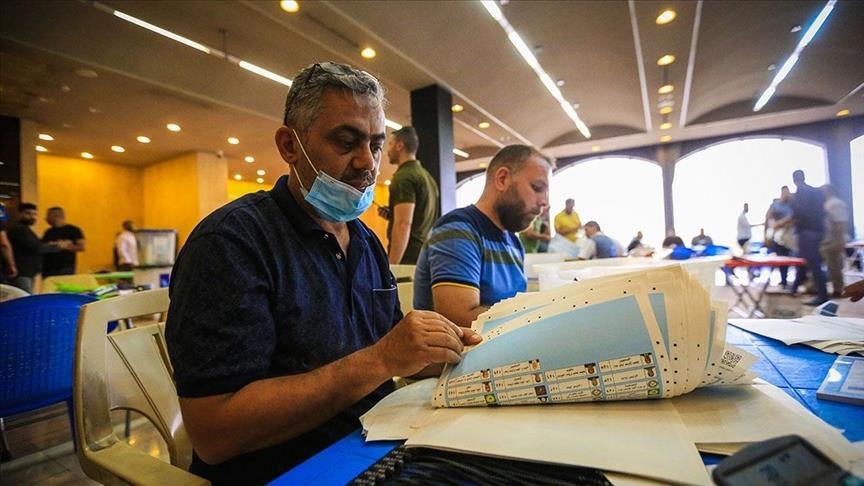Iraqi President Barham Salih on Monday called on all political parties to respect the results of the country’s parliamentary elections.
In a statement, Salih urged those disputing the vote results to pursue “legal” and “peaceful” means in doing so.
- Iraq is going through a delicate circumstance and faces grave challenges and major national entitlements,” Salih said. He called for unity and the prioritization of “the language of dialogue” and the interests of the country as well as meeting the “aspirations of Iraqis for a free and dignified life.-
Salih’s remarks came as influential Iran-linked Shia factions rejected the preliminary results of the Oct. 10 polls, including Al-Fatah coalition – affiliated with the Hashd al-Shaabi militia – and the Iraqi Civil Front of former Prime Minister Iyad Allawi.
The polls saw 3,249 candidates representing 21 coalitions and 109 parties vying for seats in the 329-member parliament, with a 43% voter turnout.
Shia cleric Muqtada al-Sadr's party won 73 seats in parliament, the highest, followed by Taqaddum bloc of Parliament Speaker Mohamed Halbousi with 37 and the State of Law Coalition led by former Prime Minister Nouri al-Maliki with 34 seats.
The Kurdistan Democratic Party also won 32 seats, the Azem Alliance of Iraqi millionaire Khamis Khanjar won 12 seats, the Patriotic Union of Kurdistan got 16 seats, the Al-Fatah Coalition won 17 seats, the Imtidad Movement and the New Generation Movement got 9 seats each, while independents won 40 seats.
Allawi’s party, meanwhile, boycotted the vote.
Salih called for "respect of the will of the people and the constitutional process”, saying challenging the results should be done within “the legal and peaceful context (and) without compromising the security of the people, their properties, and that of the country."
The elections were originally scheduled for 2022, but political parties decided to hold early elections following mass protests that erupted in 2019 against deep-seated corruption and poor governance.
